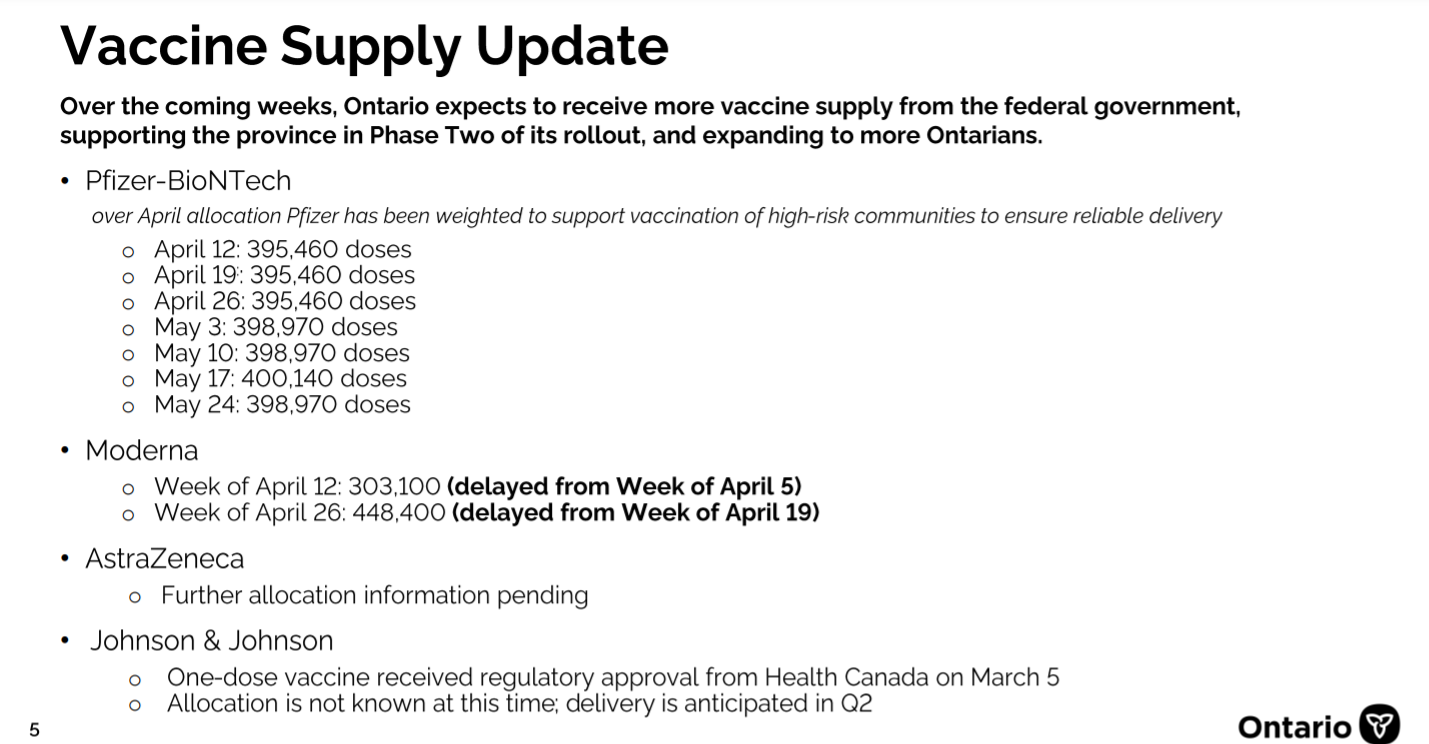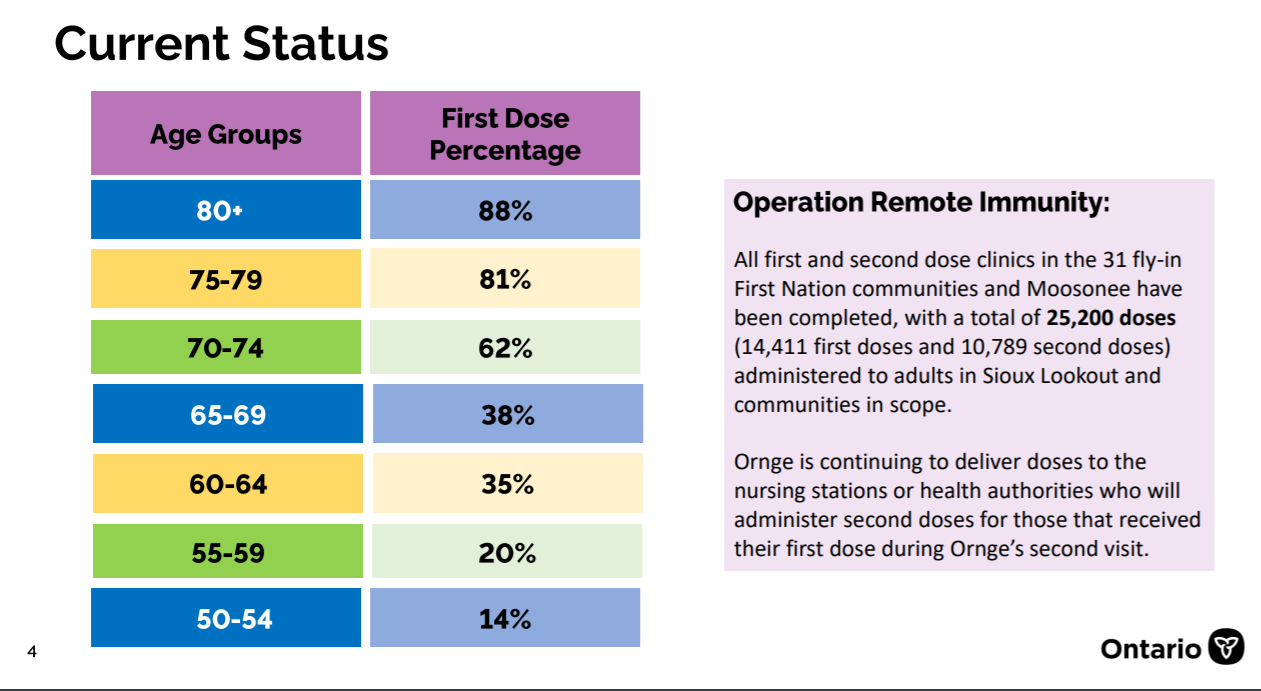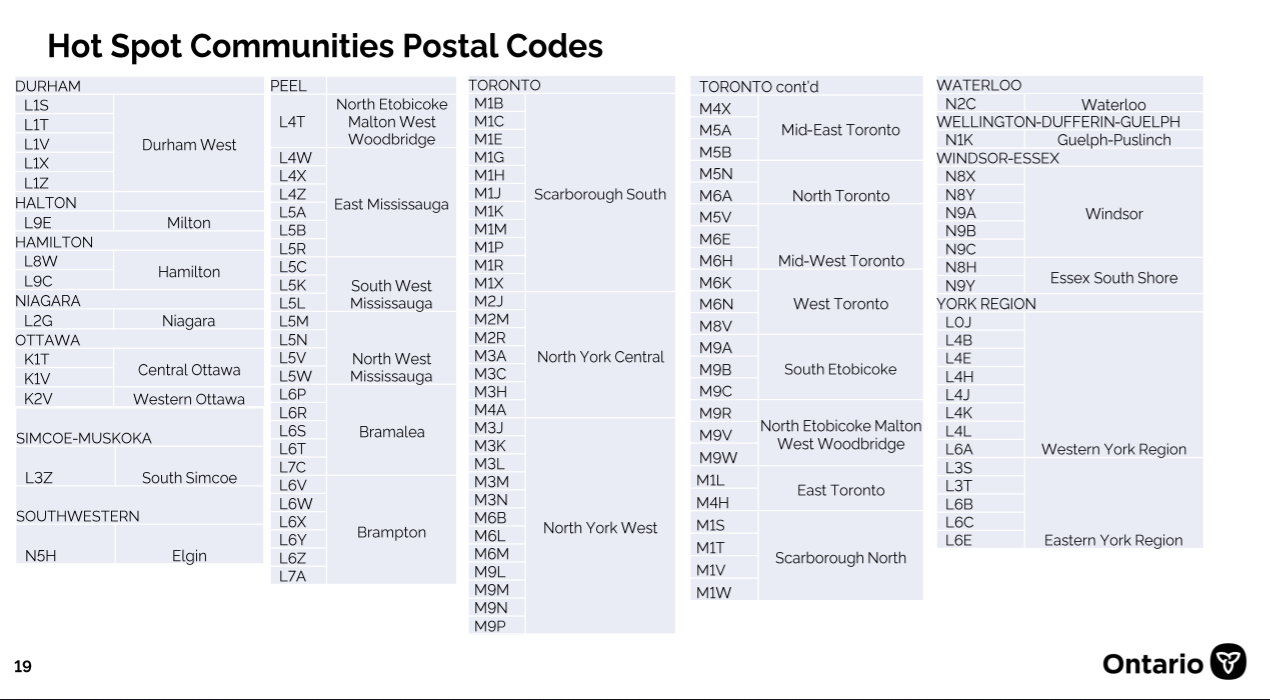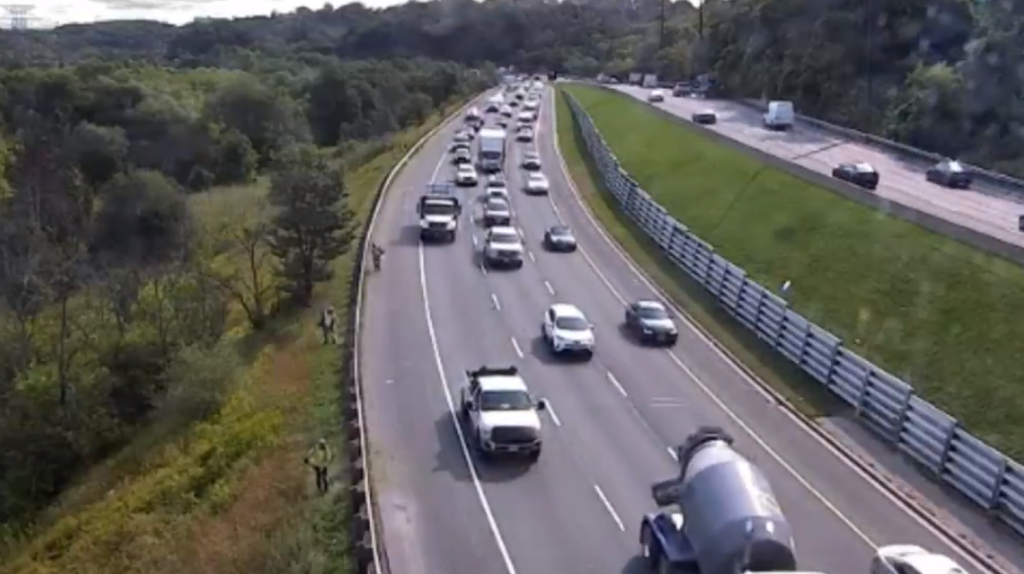Residents 18+ eligible for vaccine at pop-up clinic in North Etobicoke
Posted April 13, 2021 1:18 pm.
Last Updated April 14, 2021 5:37 am.
Ontario has announced the first pop-up clinic that will be made available to vaccinate around 15,000 people aged 18-and-up over the next several weeks.
The pop-up clinic is located in North Etobicoke at BAPS Shri Swaminarayan Mandir, located near Finch Avenue, and will run in collaboration with BAPS Charities, Toronto Public Health, and the William Osler Health System.
The site will begin administering doses on April 14.
Those 18-plus living in the following postal codes are eligible to receive a vaccine at the pop up:
- M9R
- M9V
- M9W
- L4T
- L6S
Premier Doug Ford spoke at the Hindu temple that would be hosting the clinic and explained how the pop-up sites would work.
“Part of the agreement is you don’t just do [vaccinate] your employees. You don’t just do your congregation. You reach out to the whole community in that hot zone and bring them in,” said the Premier.
“They have done such an incredible job here on such short notice.”
Booking will be done through the William Osler Booking system and began as of April 13 with dates to be determined.
Who can be vaccinated as part of Phase 2 (April-June)
The hot-spot plan will first take effect in certain postal codes in Toronto and Peel Region.
Ontario also says education workers who work or live in hot-spot postal codes in Toronto and Peel will be provided with an eligibility letter from their local school board to access a shot.
In an attempt to ward off confusion concerning the province’s COVID-19 vaccine rollout, the Ford government released an updated look at the plan, pointing to one significant delay of Moderna shipments as a reason behind Ontario’s lagging rollout.
Ford refuted the point when it was mentioned that the province’s vaccine distribution might be complex and scattered for some.
“For the folks that find it confusing, [roughly] 2.8 million people didn’t find it confusing,” said the Premier.
“… Folks, it’s very very simple.”
On Tuesday, the Ford government said that while the province has the capacity to vaccinate 150,000 eligible residents per day, further “delays in shipments and lack of visibility of vaccine volumes into May” are having an impact on inoculating the population.
It fell well below that threshold with 95,692 vaccine doses administered since its last daily update and over 3.3 million residents vaccinated to date. Just over 330,000 people are fully vaccinated with two shots.
Canadians with at least one dose:
▓▓▓░░░░░░░░░░░░ 20.22%
— Vaccine Tracker Canada (@vactrackcanada) April 13, 2021
While Pfizer-BioNTech shipments are expected to remain steady, Ontario is still waiting on the next batch of vaccines from Moderna with one shipment expected to arrive this week.
The second April shipment of around 500,000 doses that was set to arrive in the province by the week of April 19th is delayed once again and isn’t expected until the end of the month.
“These delays [Moderna] have a significant impact on [the] continuity of clinic operations and require contingency planning to avoid cancellation of planned appointments,” says the province.
Phase 2 will start to see shots administered based on risk factors including age, neighbourhood, existing health conditions, and inability to work from home along with those aged 60 to 79.


There was not an update on the circumstances surrounding the distribution of the AstraZeneca vaccine and the province has yet to receive clear plans on the rollout of Johnson & Johnson’s shot, which was paused in the U.S. as of Tuesday.
The province, meanwhile, says over 80 percent of Ontarians aged 75 to above 80 years old have received at least one shot, followed by 62 percent of those between the ages of 70-74, and 38 percent of those between the ages of 65 and 69.
As of Monday, people between the ages of 18-49 in three Toronto COVID-19 hotspots could register for vaccines through the University Health Network (UHN).
The UHN paused registrations on Tuesday due to a lack of supply.
The eligible postal codes are:
- M5V
- M6E
- M6H
The Ford government says based on local knowledge and data, public health units may determine there are other hotspots deemed a priority and mobile clinics will be set up to vaccinate residents in these areas.
The province has split up workers into different categories including the following:
Those who live and work in high-risk congregate settings (April-May)
All at-risk staff, essential caregivers, and residents from the following congregate settings will be eligible for the COVID-19 vaccine:
- Supportive housing
- Developmental services/intervenor and supported independent living (SIL)
- Emergency homeless shelters
- Other homeless populations not in shelters
- Mental health and addictions congregate settings
- Homes for special care Violence Against Women (VAW) shelters and Anti-Human Trafficking (AHT) residents
- Children’s residential facilities
- Youth justice facilities
- Indigenous healing and wellness
- Provincial and demonstration schools
- Farmworkers who live in congregate settings, including Temporary foreign workers, Bail beds, and Indigenous bail beds
- Adult correctional facilities
Essential workers/those who can’t work from home (May-June)
Workers who can’t work from home will be vaccinated in two groups encompassing a variety of sectors. The second group will be eligible once the first group has been vaccinated:
The first group of essential workers (730,000 people):
- Elementary/secondary school staff and bus drivers that transport students
- Workers responding to critical events (e.g., police, fire, compliance, funeral, special constables)
- Child care workers
- Licensed foster care workers
- Food manufacturing workers
- Agriculture and farm workers
RELATED: Guide to booking a COVID-19 vaccine in the GTA: Who, where and how
Ontario says community groups will help organize COVID-19 vaccine clinics for residents aged 18 and older in “high risk” settings within virus hot spots.
The province says those groups include faith-based organizations, employers, and other community organizations.
Mobile teams and pop-up clinics will be used to vaccinate residents in those places and the government says individuals can contact their local health units for details.
Eligible workers can schedule appointments through the provincial vaccine booking portal starting today.
Updated hotspot postal codes
 On Tuesday, Ford Government house leader Paul Calandra said in the legislature that “Ontario has been leading the way when it comes to fighting the coronavirus.”
On Tuesday, Ford Government house leader Paul Calandra said in the legislature that “Ontario has been leading the way when it comes to fighting the coronavirus.”
What yesterday and what last week represented was the Ontario government and the people of Ontario finally moving away from defense into offense to fight and defeat the Covid virus once and for all,” said Calandra.
Calandra’s comments follow Premier Ford’s assertion on Friday that “Ontario is doing pretty well,” though the Premier later insisted that he was talking about Ontario’s vaccination efforts.










